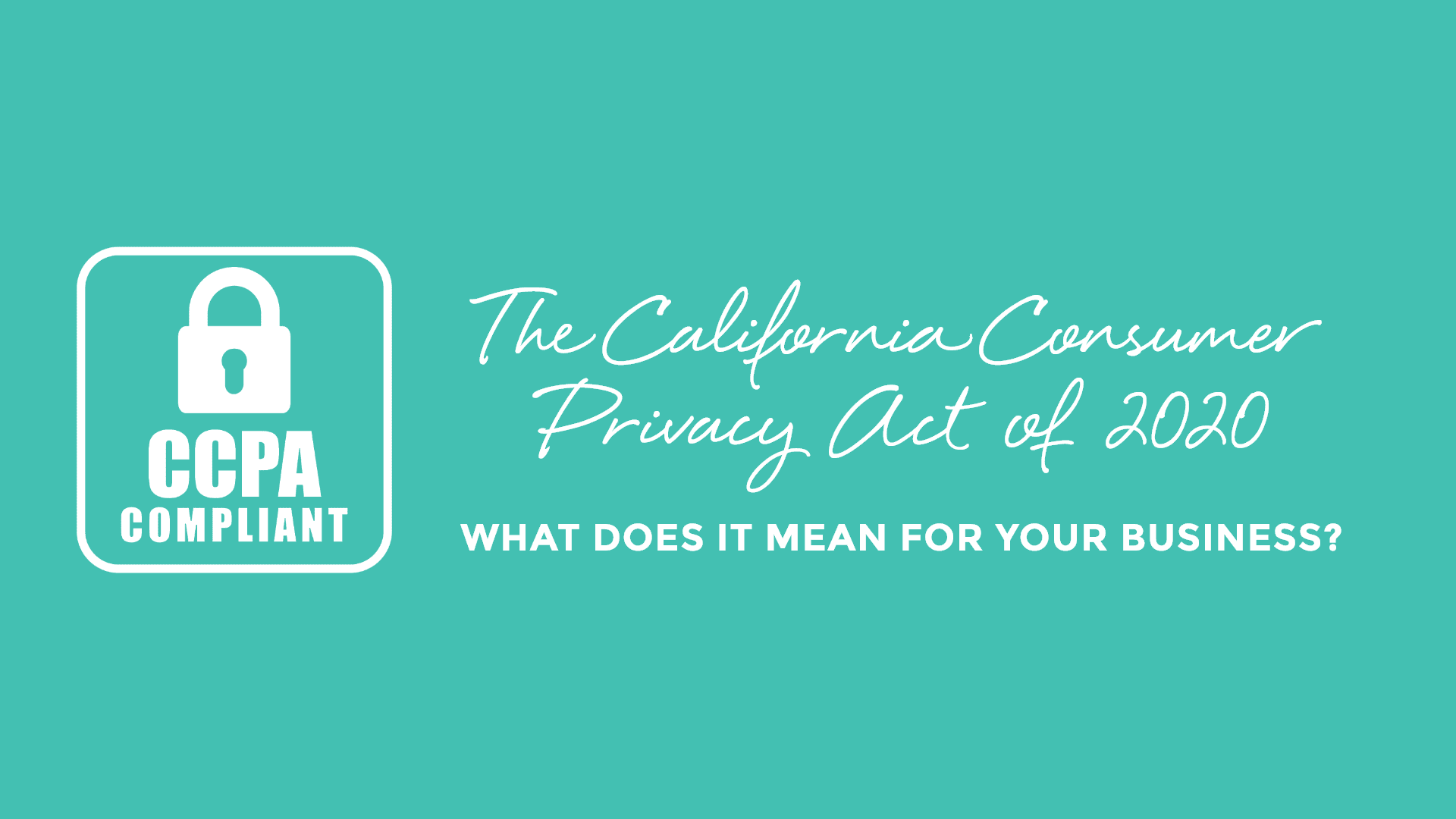Two years ago California passed the “California Consumer Privacy Act” that went into effect on January 1st, 2020. The act is designed to enhance privacy rights of consumers by allowing them to know if and how their private information is collected and how it will be used. In addition, websites must now give customers the chance to opt out of having information collected. Do you know if your website will be affected and how to comply? We’ve got the breakdown for you:
What Is the CCPA?
The California Consumer Privacy Act is designed to let consumers know what information is collected about them when they visit a site – and what the company collecting will do with the information. This includes if the data is used for marketing purposes or if it’s being sold to other companies. If so, the buying company must be disclosed. Consumers are given options to:
A. Opt out of their information being collected
B. Access the information that is collected
C. Request that any information collected be deleted by the company
Lastly, consumers who enact any of the above are not to be discriminated against by the site for which they have opted out of data collection.
How Does It Work?
Websites must provide a process to obtain parental consent for minors under 13 years old who are visiting sites, as well as consent for minors between 13 and 16 years old. There must also be detailed methods for submitting requests for data, which needs to include, at minimum, a telephone number. The home page must include a link where consumers can opt out of the sale of information. All of the above must be detailed in the privacy policies on the website.
Who Has to Comply?
Here’s the good news, not all businesses have to comply with the California Consumer Privacy Act. Any business that does business in California AND satisfies at least one of the following must comply:
- Gross annual revenue in excess of $25 million
- Possesses personal information of 50,000 or more consumers, households, or devices
- Earns more than half of the annual revenue from selling consumer information
Need more information? Click over to the California Consumer Privacy Act website for more information.

